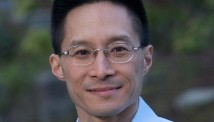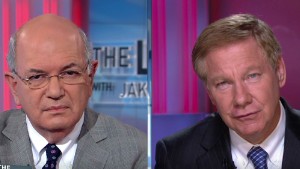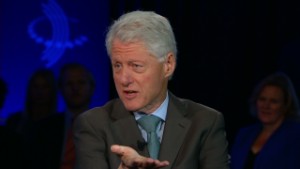Editor's note: Eric Liu is the founder of Citizen University and author of several books, including "The Gardens of Democracy" and "The Accidental Asian." He served as a White House speechwriter and policy adviser for President Clinton. Follow him on Twitter: @ericpliu
(CNN) -- As Congress heads implacably toward another shutdown showdown, the fate of the federal government hangs in the balance. And America is yawning. Or, at least, not panicking. Why?
One reason is that we've all become inured to the utter dysfunction of Washington. But another is that Washington matters less every day. Even though the shenanigans of congressional Republicans make for a perfect negative civics lesson -- Don't do this in real life, kids -- in cities all across the country civic innovation is flowering, and everyday citizens are becoming newly empowered.
While our federal government has tied itself in partisan knots, cities are showing the way forward.
 Eric Liu
Eric Liu Solutions are emerging on the local level and radiating outward. This isn't just a matter of recession-era devolution, of passing the buck from the federal to the municipal. It's not some precious parochialism. The localism of our time -- and you see it in how people eat, work, move, buy, sell, grow, share, create -- is a networked localism.
New approaches to making cities more bike-friendly and walkable can launch in Copenhagen and end up in Austin or Portland. Experiments in participatory budgeting -- where everyday citizens directly decide how to allocate city funds -- have spread from Porto Alegra, Brazil, to the wards of Chicago. Ways to decentralize the electrical grid are being developed in Chattanooga and then spreading to the Bronx. Fast food workers are pushing for a living wage in Milwaukee and Detroit, inspiring others in Los Angeles and St. Louis to do the same.
All these citizens, united, are making a web -- a great archipelago of power that can bypass a broken Washington.
All of civics boils down to a simple question: Who decides? You have to learn the rudiments of power to have a shot at deciding. But you also have to have an arena where you can plausibly practice deciding. And there is no better arena in our time than a city.
 Who loses if the government shuts down?
Who loses if the government shuts down?  Bill Clinton on Ted Cruz
Bill Clinton on Ted Cruz In a city, there is less time and patience for ideology and for the preening and posturing that now define national politics. You either reduce crime or not. You either create jobs or not. You either educate kids or not.
Any mayor knows this, as the political philosopher Benjamin Barber argues in the forthcoming book "If Mayors Ruled the World." The challenge of this era is to enable every citizen to think more like a mayor -- pragmatically, oriented toward solutions, willing to experiment, eager and be shameless about borrowing great ideas from other people in other places.
Picture the city where you live. Think of something you want to change in the city's common life. It can be something small, like the placement of a street lamp. Something medium, like which neighborhood's library branch should get its hours extended. Something large, like whether a rundown waterfront will become a highway or a greenway.
Now think about how you will get the change you want. Take a quick inventory of the many forms of power at play in your situation -- money, people, ideas, information and misinformation, threats of force, force of norms.
Imagine what you'd do to activate or neutralize these various forms of power. Could you put your ideas into effective practice? The best way to try is to try at home -- in your own city. The best way to learn is to learn with others -- in a city. Even in this globalizing age -- or perhaps especially in such an age -- all citizenship is local.
In my town, Seattle, I served for many years as a trustee of the public library. The voters had passed a big bond measure in the late 1990s, and for the following decade we built or renovated dozens of branches and a new downtown central library.
The way we began was to go to every neighborhood and hold "Hope and Dreams" meetings to hear from residents what they wanted their branches to look and feel and sound like. They shaped design and collections and programming. We listened. Though I've worked at the highest levels in national politics, at the White House and in the Capitol, I never learned as much about democracy as I have in trying to make the libraries of Seattle work.
The original meaning of "citizen" is a resident of a city. Washington may yet run itself into the ground, and there will be huge unnecessary costs to a government shutdown (let alone a threatened default). But most of us cannot control how this manufactured crisis will conclude. All we can do to keep our hopes and dreams alive for the country is to remember what it means to live and act like a citizen.
Follow @CNNOpinion on Twitter.
Join us at Facebook/CNNOpinion.
{ 0 comments... read them below or add one }
Post a Comment